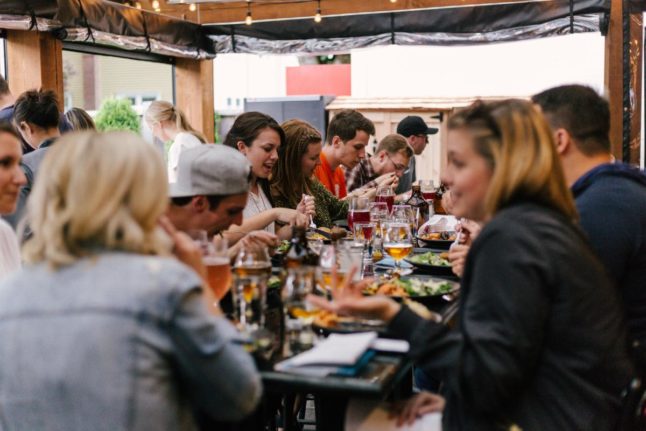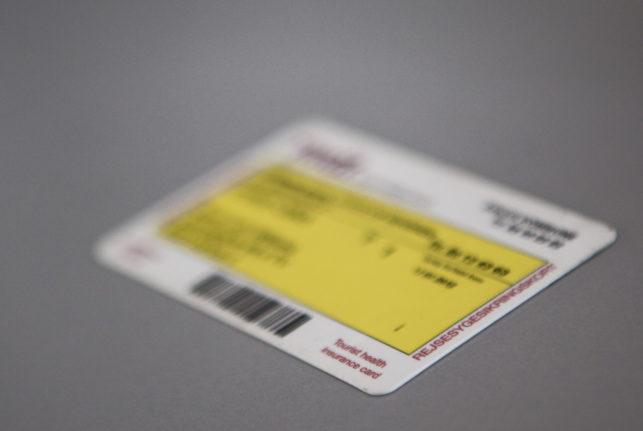In a recent survey of immigrants, Denmark was ranked at a disheartening 51st position (out of 53 destinations surveyed) in the “Ease of Settling In” Index. Denmark also ranked in the bottom ten globally across all subcategories and factors measured in this index.
Some 35 percent of respondents to the survey said they faced difficulties in acclimating to their new environment – a stark contrast to the global average of 18 percent. Denmark also ranked last in the Finding Friends Subcategory, with 66 percent of respondents saying they found it challenging to make local friends.
“One point could be perceived cultural differences. People who perceive themselves as more alike are more likely to become friends or socialize,” Jeppe Fuglsang Larsen, a researcher at Aalborg University who focuses on identity construction among ethnic minorities in Denmark, told The Local.
“Cultural differences are often understood in a continuum, where some cultures are perceived as more different from the majority than other cultures. This is a general sociological point that could hold some explanation as to why it can be hard to become part of or feel at home in another country or explain why it is hard to make local friends,” he said.
READ MORE: Why do foreigners find Denmark such a difficult country to settle in?
“Of course, this would also be the case in other countries, so the question is, what is particular to the Danish case? Maybe Danes are more ‘private’. Anthropological research has found Danes to value privacy to a large extent, where Danes are centred around their own private circle of people, which might be seen as something enclosed and exclusive from the outside,” Fuglsang Larsen said.
“Research also points to the fact that in order to become part of a local community and not be seen as a newcomer, one has to have lived in the community for many years. This not only goes for international citizens, but also Danes moving to new areas of the country,” he said.
Negotiating cultural boundaries
According to the findings of the InterNations Expat survey, a notable percentage of international citizens in Denmark rated their social life negatively, had trouble adapting to the local culture, and stated they did not feel at home in Denmark.
Fuglsang Larsen believes that the ethnic and cultural boundaries that appear across different social settings might play a role in this widespread sentiment among international citizens.
“In my research on identity construction among ethnic minorities in Denmark, a main theme has been how ethnic and cultural boundaries appear in different social settings and how ethnic minority people have to deal with and negotiate these boundaries with both ethnic Danes and other ethnic minority people.
“An often mentioned ethnic and cultural boundary has been the Danish ‘party culture’ and alcohol. This can be used as an example of issues related to belonging, adapting, and feeling at home. For personal, cultural and religious reasons, ethnic minority people may not want to participate in these activities.
“My research has shown how choosing to opt out of the Danish ‘party culture’ can lead to social exclusion, which then can lead to feelings of not being part of ‘the Danish culture’,” the researcher said.
Danish party culture
There are also perceived downsides for those who opt into the party culture, as the very act can be seen as “selling out” in their social groups.
“Those who do choose to participate in the party culture often do feel that it is a way of becoming friends with ethnic Danes and part of the Danish culture. They may, however, have to negotiate their choice with other ethnic minority people.
“The young people I have interviewed have described how becoming part of the Danish culture can be seen as ‘selling out’ or that being ‘integrated’ is seen as negative and used as a derogatory term among some ethnic minority youths.
“It that way, having trouble adapting to local culture is a multifaceted social problem. It might be that the local culture, in some ways, is excluding those who in some ways are perceived as not fitting in or are perceived as newcomers, but it also requires a willingness and effort to adapt and participate actively in the local culture, society, and community,” Fuglsang Larsen told The Local.
Tips on settling in Denmark
There are research-supported activities, however, that people can engage in that can help them find their place in Danish society more easily.
“Finding a place in society is about feelings of belonging, which again is connected to social inclusion. A path to meeting and socializing with other people could be through voluntary work or participating in sports associations and activities.
“Research has shown that doing voluntary work and participation in sports associations are ways of bonding with people outside of one’s ethnic or cultural group. Denmark has a tradition and culture of participation in associations, or in Danish ‘Foreningskultur’,” he said.



 Please whitelist us to continue reading.
Please whitelist us to continue reading.
Member comments